Why a wildlife trust needs funds to restore land
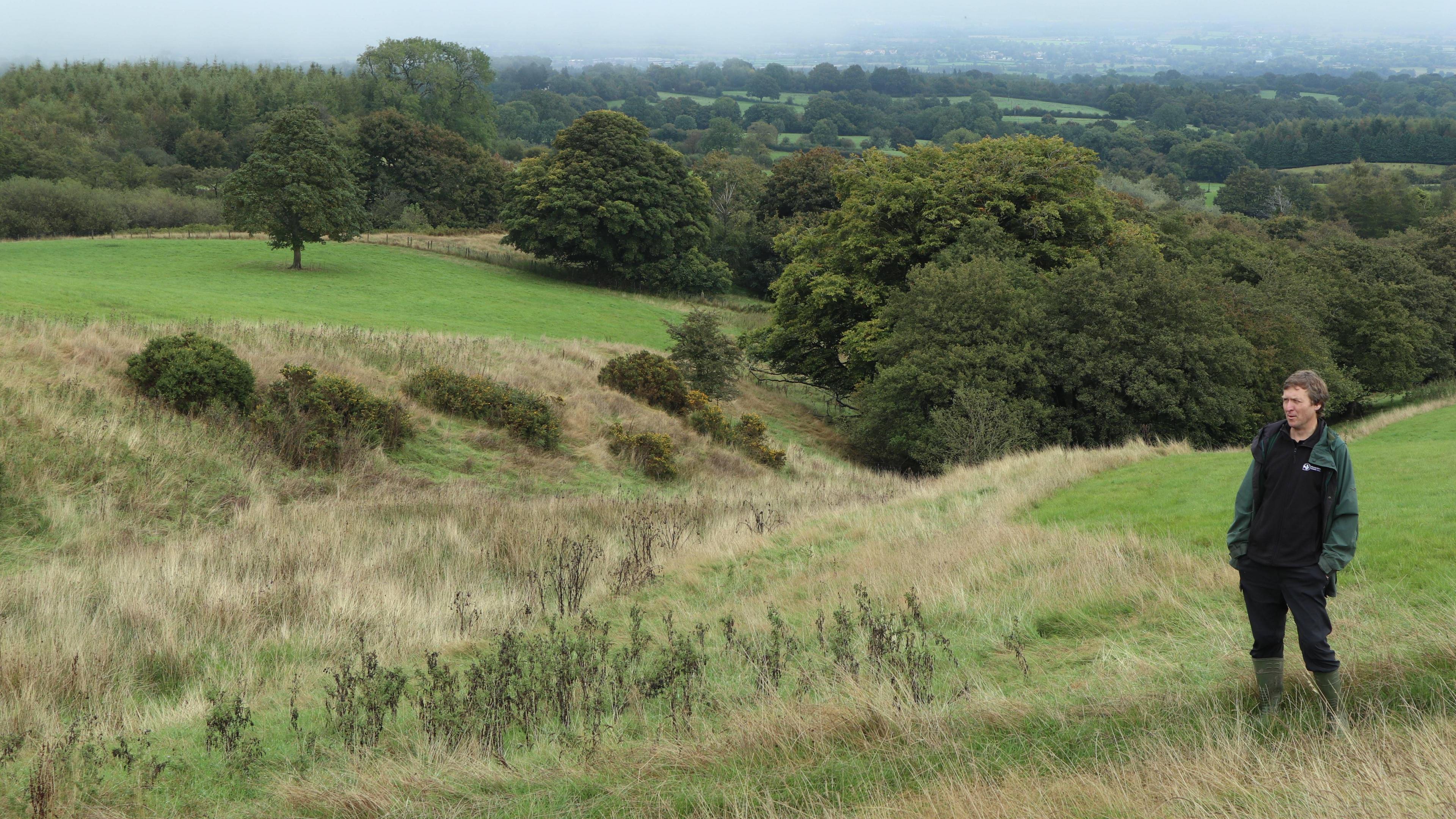
Betchcott Hill is 50 hectares, and sits between the Long Mynd and Stiperstones in Shropshire
- Published
"It's three fields and lots of wet bits in between".
That is a wildlife trust's description of Betchcott Hill, a bit of land in the Shropshire Hills it has just purchased.
It now needs to raise more than £130,000 by the end of the year to help restore the habitat, home to many species of wildlife. The hope is that it can help boost the numbers of some declining species.
"It’s a wonderful place, it’s a wonderful bit of landscape with some fantastic views, but it’s also got some amazing habitats and some really interesting species," said Tom Freeland, Shropshire Wildlife Trust's head of nature reserves.
What is Betchcott Hill?
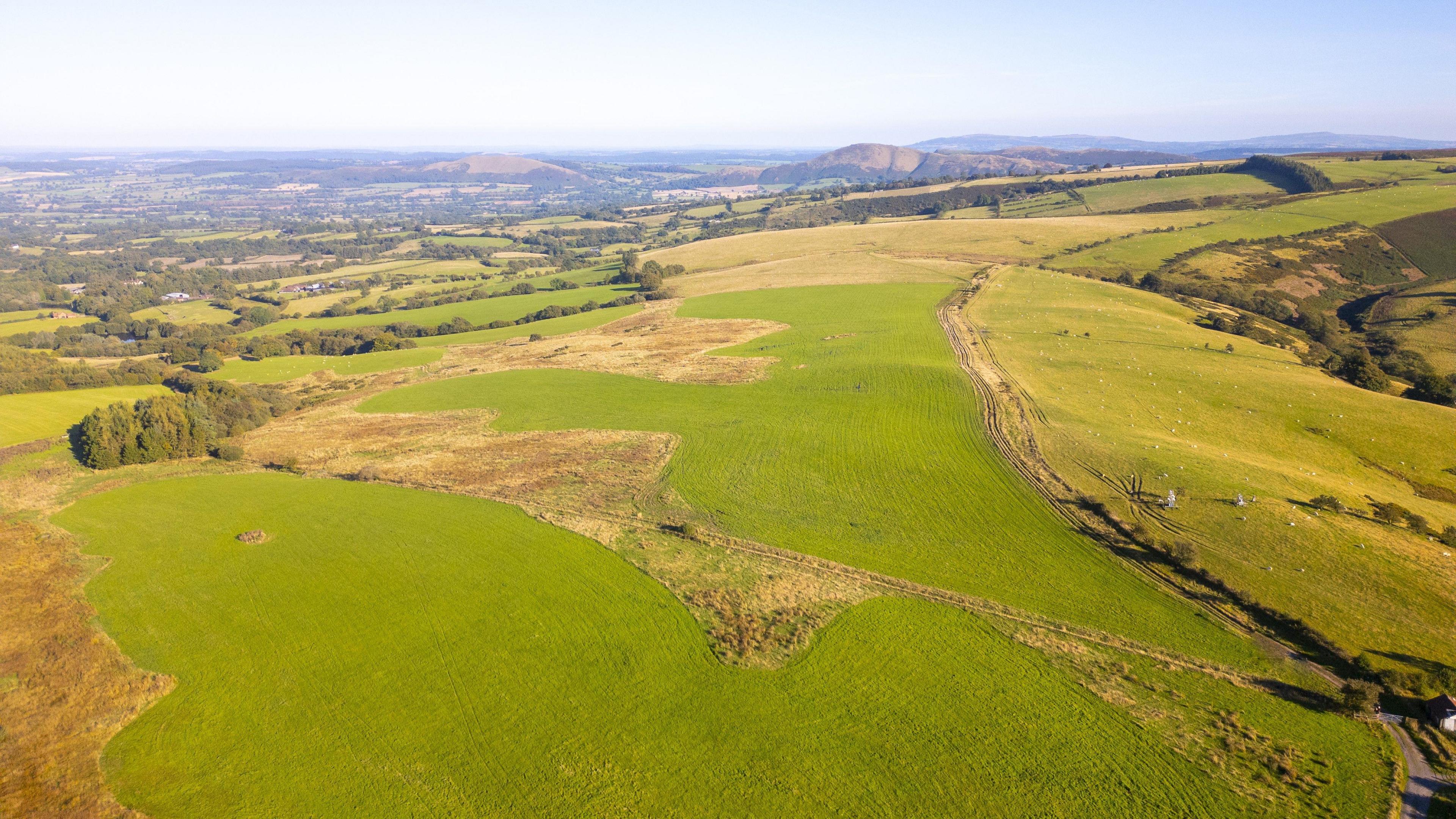
The site is home to three main habitats, and is home to many breeding birds, including the curlew
The 50 hectare (123 acres) site, between the Stiperstones and the Long Mynd, is home to a multitude of habitats and many species of wildlife, which the trust is hoping to help thrive.
"You’ve got some lovely wetland areas, which are great for the breeding birds and the other species, we’ve got some really interesting wet woodland but we’ve also got quite a lot of grassland," Mr Freeland said.
"We're confident that [grassland] can become, in essence, special grass like you can see on the Stiperstones."
This grass is much more beneficial for the species already trying to breed on the site, he added.
Which species will benefit?
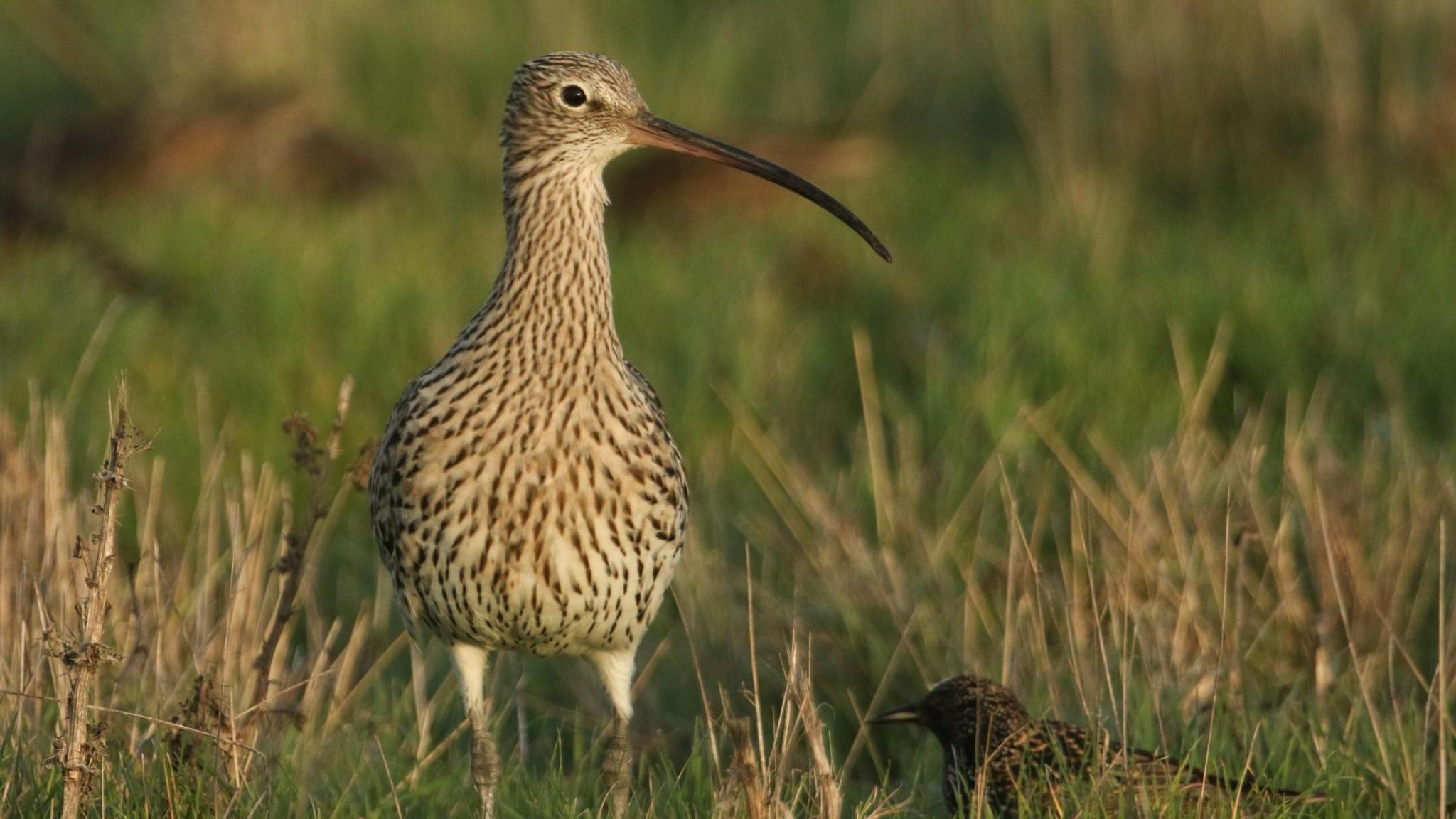
Shropshire Wildlife Trust is hoping changes to the habitat will help the curlew population to breed successfully
"Skylark and snipe, cuckoos and lapwing," said Mr Freeland.
"I think the most exciting and probably the bird that needs the most protection is the curlew, a real icon of the Shropshire Hills."
It is apparent that the curlew needs the help - the trust said their population in Shropshire dropped 77% between 1990 and 2010.
"We know that they have bred on site, we know that they attempted to raise chicks on this site last year, we know they didn’t successfully do so," he said.
"They are struggling as a species, they need that longish grass that they can safely raise their chicks in."
Why this site?
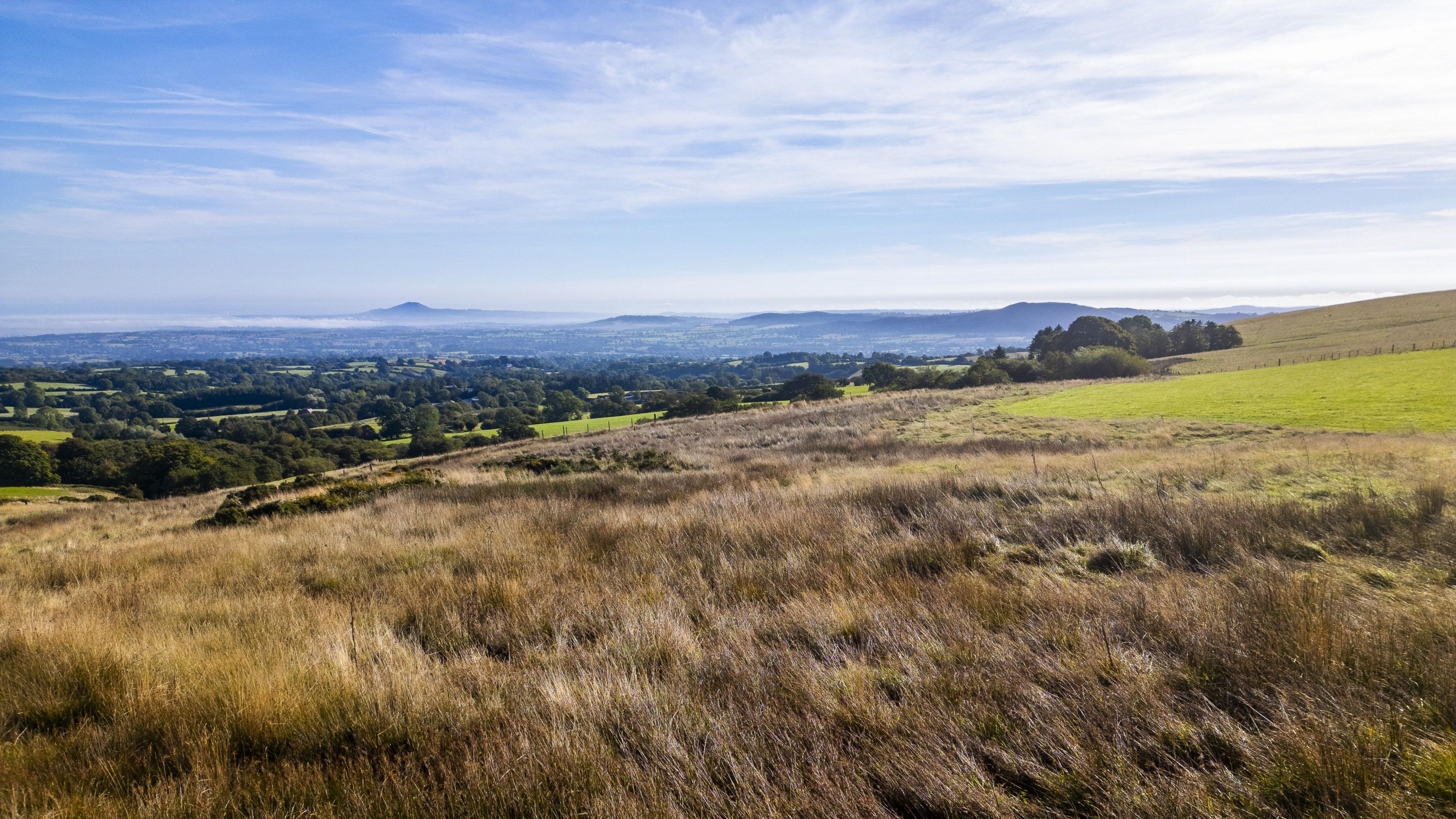
Work on the land will begin this winter, the trust says
The trust is keen to connect their reserves in the Shropshire Hills area and Betchcott Hill nestles between two of their existing sites.
"I think we’re always looking out for the right place where we can make the biggest impact for wildlife," said Mr Freeland.
"This is an opportunity that came up, to pick up what is essentially a missing link between the Long Mynd and the Stiperstones, and our other existing reserves we have in the area like Earl's Hill and The Hollies.
"It needs some work to get to be as good as some of the other places we’re looking after, but we’re confident we can get it there."
What will the money fund?
In total, Shropshire Wildlife Trust needs £1,113,000 to make this all happen.
It has already secured £975,000 towards that total. Of the remaining £138,000, the public has already raised more than £32,000.
"This is really only the start," said Mr Freeland.
Changes to the habitats include the introduction of new hedgerows, green hay to improve the grassland, accessible parking, and creating feeding sites for the curlews.
Not wanting to wait, the trust is starting work this winter.
"One of the things we need to do as a priority is to manage the site for the curlews and the other breeding birds," he added.
"The work starts now, really."
Get in touch
Tell us which stories we should cover in Shropshire
Follow BBC Shropshire on BBC Sounds, Facebook, external, X, external and Instagram, external.
Related topics
- Published14 October 2024
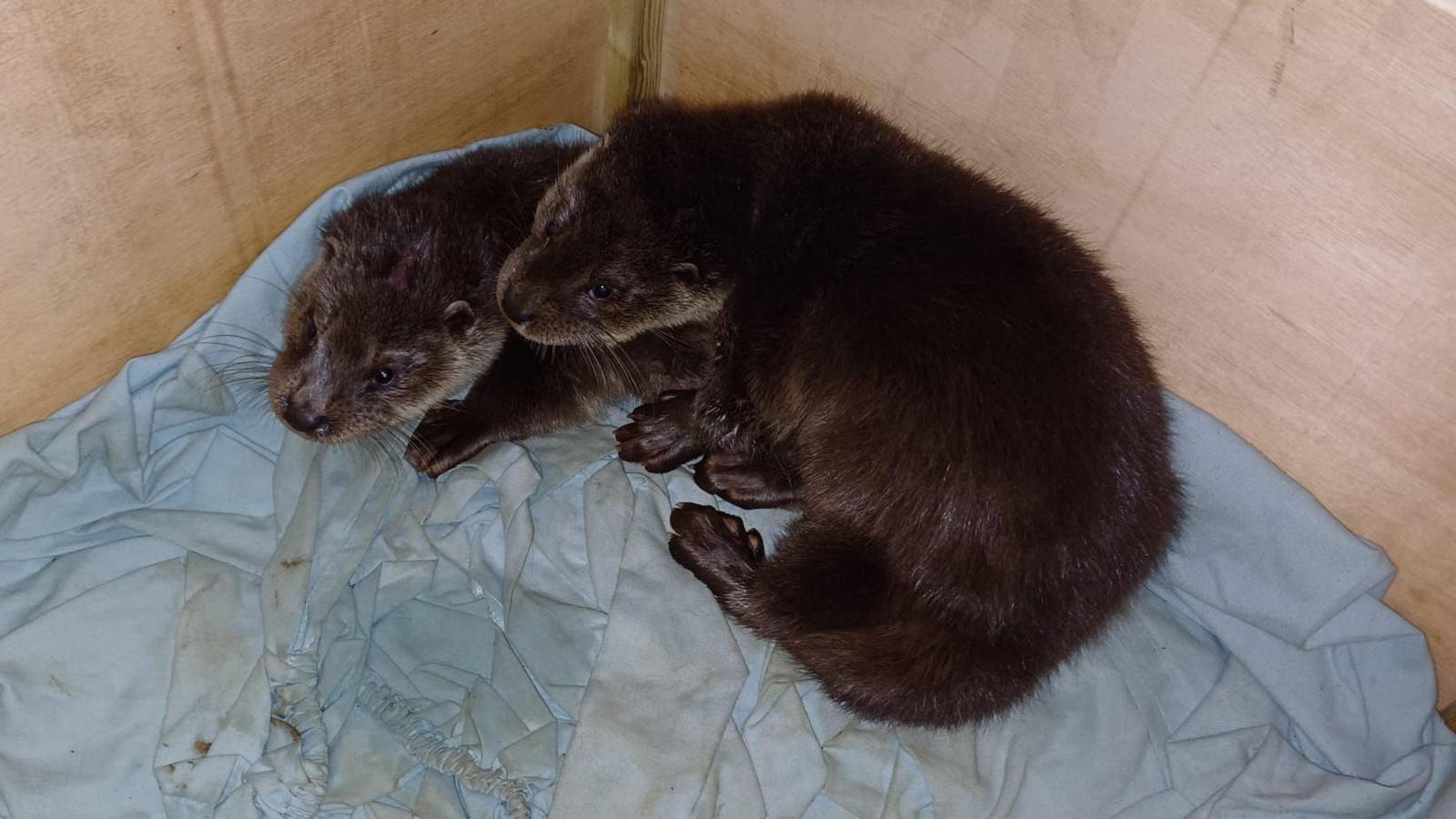
- Published4 December 2023
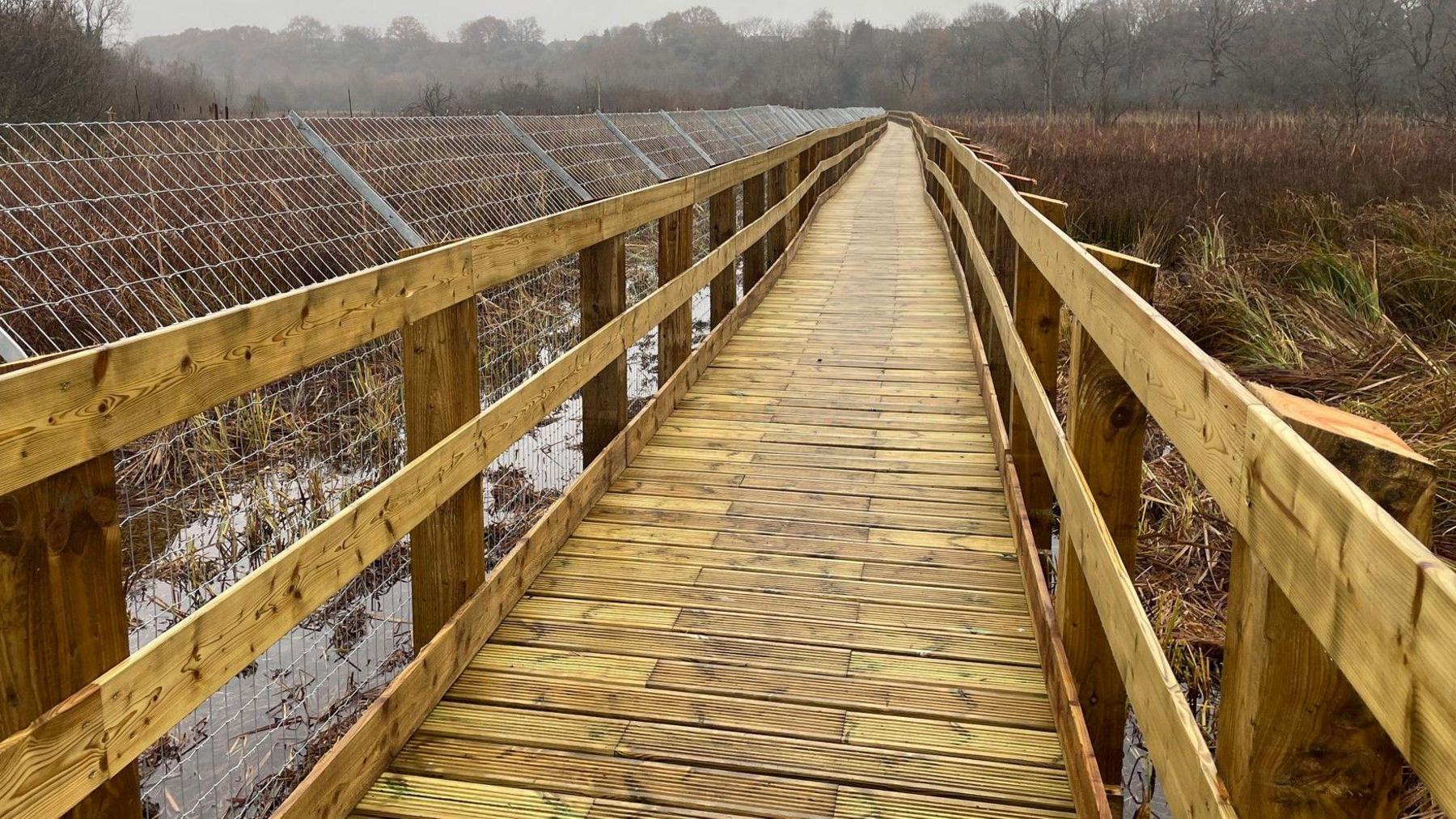
- Published6 August 2023
